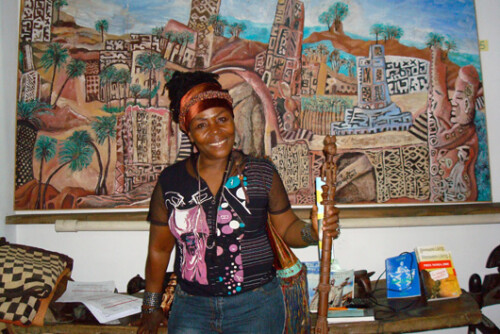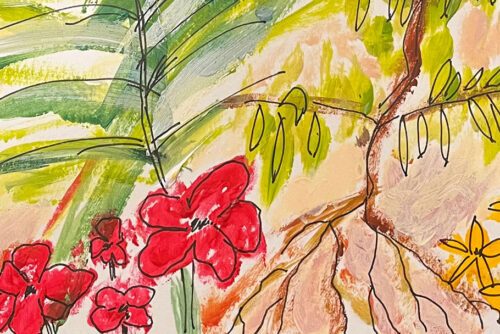During the sessions, I found that even though I understand my experiences as an African-American, my ability to connect with certain subjects and participate in certain discussions was limited. While talking about water privatization, for example, I felt at a loss about how to contribute. Growing up in California, I never encountered issues with water access (other than pledging to monitor my water use in kindergarten during a drought), and I remained ignorant of issues of water access in the U.S.—and unaware how access fared among racial and gender lines. I wavered when participants were asked to stand if everyone in their country, without exception, had access to clean tap water. I never stood up because the instructor assured me that the U.S. did not make that list. Although she had plenty of information to offer those from African countries, she did not address the issue of water access in the U.S.. Whereas in some countries water access is a political issue, those of us from other places—particularly from Brazil and Trinidad—were unaware of the particular challenges to water access. As a result, a number of us simply observed instead of contributing to the conversation. Although we remained silent, however, this situation compelled many of us to question and learn more about our local access to water, thus enriching our future activism.
This discussion proved interesting, especially since it reversed the tendency to focus on the U.S. by placing Africa at the center of attention. However, this reversal also led to my exclusion from the conversation, forcing me again to question the role the institute expected me to play. How could I possibly mobilize my own nation without learning more about my particular experiences? Slowly, I began to recognize that how the organization viewed my role in the diaspora had less to do with mobilization in my own country than with my potential contributions to mobilization efforts in the continent. It became increasingly clear that my role—and the role of participants not from Africa—was that of an ally to the continent.
Since 2003, the African Union has actively regarded the African diaspora as a major contributor to the development of the continent. They define the diaspora as follows: “The African Diaspora consists of peoples of African origin living outside the continent, irrespective of their citizenship and nationality and who are willing to contribute to the development of the continent and the building of the Africa Union.” 1 The use of the phrase “willing to contribute” situates the “diaspora” within a political context. As such, a person of African descent living in the United States, with no interest whatsoever in the affairs of the continent, is not considered part of the diaspora because they contribute nothing to the continent.
In line with this thinking, the World Bank launched an initiative in support of the African Union’s mobilization of willing participants in the diaspora. They group members of the diaspora into two categories: (1) people of African heritage who “involuntarily” migrated to North America, Europe, the Caribbean, Brazil, and Latin America (2) people of recent “voluntary” migration from Africa. Interestingly, the World Bank carves out a specific agenda for those who trace their heritage to the middle passage:
[This] former group is especially relevant in the formation of socio-economic and cultural blocs of collaboration to strengthen Africa’s response to globalization; tapping their capacity to lobby Western governments (in the case of African-Americans, African-Canadians, and African- European groups) for the benefit of Africa, e.g., combating HIV/AIDS, Malaria; resolving conflicts such as in Sudan’s Darfur
region) . . . (2).
Here, the underlying definition of diaspora comes from a Sub-Saharan construct; there is, in fact, no mention of North African countries. In addition, the World Bank remains clear about its focus on the potential mobilization efforts by members of the diaspora. And its written statement, too, focuses specifically on the political influence of the diaspora in the United States, Canada, and Europe by encouraging people of African descent to utilize their political power to influence their respective government policies in favor of development projects in Africa.
Despite the fact that the institute referenced neither the African Union’s nor the World Bank’s definition and expectations of the “diaspora,” the training no doubt fell in line with the role of the diaspora in the development of continent. Learning about this discourse (from the World Bank, the African Union, and others) affirmed my bourgeoning realization that my role at the training institute was not necessarily to learn how to effect change in my own community but to become an ally of social mobilization on the continent.


